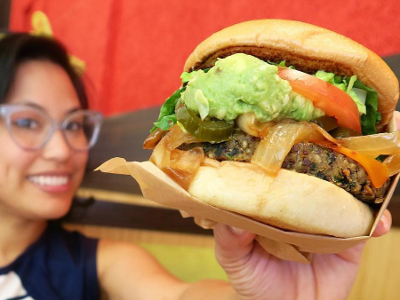When we think of inflammation we use to consider it to be a threatening token signaling that something doesn’t work properly in our body. Of course, this is the case. However, as fever is the first line of defense against any kind of bacterial and viral attack on your body, inflammation is supposed to serve the same purpose in its initial stage: It sets the self-healing forces of your body free. In fact, it can very well protect your health as long as the self-healing process works smoothly. However, it can also threaten it if this process should fail. Fortunately, a plant-based diet is probably the best way of strengthening the self-healing-power of your body which can fight inflammation successfully. In other words, it supports the beneficial impact of inflammation on your body and avoids the health-threatening effect on it by causing inflammation to come shortly to an end before it displays its harmful impact on the body.
“Inflammation has a bad reputation, but it can be a good thing, too. When the body is injured or invaded by pathogens, inflammation represents one of the first lines of defense. The pain, swelling and redness result from the body focusing its energy to heal itself.
But inflammation certainly has a dark side. Acute inflammation results when you injure yourself and subsides when that injury is healed. Undesirable prolonged inflammation, or chronic inflammation, reflects a malfunction in this important immune mechanism and can lead to some of our most life-threatening conditions, including cancer, autoimmune disorders, diabetes, Alzheimer’s and heart disease.
So it’s important to recognize the yin and yang of this vital function: Inflammation both protects health and may threaten it. Ultimately, we need to find the ideal balance. And with temperatures warming up, it’s critical to address this issue; chronic inflammation tends to worsen with the heat. Reducing inflammation can also help us reduce seasonal allergies and boost detoxification.
The Threat
There are a number of risk factors for chronic inflammation. These include: long-term infection, poor diet, toxins, heavy metals, smoking, stress, exhaustion and obesity. These factors put the body on high alert, even when an alert is unnecessary. Consequently, the constant flow of inflammatory cell signals produce a cumulative effect that can significantly damage health over time. For example, it can scramble DNA, interfere with cellular communications, impair immunity and create an environment that allows tumors to grow.
To eliminate chronic inflammation, we must reduce these underlying factors and support the body’s natural anti-inflammatory mechanisms. We need to tell the body to stand down.
Lifestyle Factors
Extra pounds are bad for health, but how that fat is deposited on the body can be just as important as the actual BMI (body mass index). A number of studies have shown that visceral fat, the stuff in our midsection, profoundly impacts inflammation. To make matters worse, the hormone cortisol, which increases stress, joins forces with visceral fat to produce inflammatory immune cells called cytokines.
However, being thin is not necessarily any better. Eating pro-inflammatory foods can also throw your system off balance even if you are physical fit. That’s why we should all stay away from processed foods and control our intake of sugar and trans fats. In particular, processed, fried and grilled foods are high in advanced glycation end products (glycotoxins), which promote oxidation and inflammation.
One study, conducted by researchers at the Mount Sinai School of Medicine, outlined how dietary changes can have a profound impact on inflammation and health. Two groups were assigned separate diets. One ate a normal Western diet, high in glycotoxins. The other was asked to poach, stew or steam their meals, processes that produce fewer glycotoxins. After four months, the latter group showed dramatic reductions in inflammatory markers and had other indications of improved cardiovascular and metabolic health. In addition, a protein that helps clear these toxic compounds increased, restoring the body’s normal protective mechanisms.
Fight With Food
These results are no surprise. Making good food choices can be a one-two punch against inflammation. First, as the Mount Sinai study indicates, we need to reduce the amount of processed and overcooked foods we eat. But we should also be mindful of what we’re eating: lean protein, foods with omega-3 fatty acids such as chia and walnuts, sprouted whole grains, fruits and vegetables — particularly the green leafy variety. These foods tend to be very high in antioxidants, which will help counteract the effects of both glycotoxins and inflammatory cytokines.
Eat more phytonutrients, which tend to be high in antioxidants and include other health-promoting compounds. Richly colored fruits, like tomatoes, blueberries and strawberries, are excellent sources. I also recommend cruciferous vegetables, such as broccoli, kale, cabbage and cauliflower. Once eaten, these vegetables metabolize into a phytonutrient known as DIM (3, 3’- diindolylmethane), which has been found to control inflammation, modulate estrogen metabolism and even combat cancer.
There is also evidence that probiotics may reduce chronic inflammation. Too many unhealthy microbes in the gut can force the body to respond to the potential danger, again leading to inflammation. Probiotic foods, such as yogurt, pickles, sauerkraut, miso and kimchi, help maintain the balance of friendly flora in our digestive tract and are shown to help reduce inflammation.”
To read the rest of the article, check it out on the original source over at Better Health Publishing.
Image Source: Slideshare







